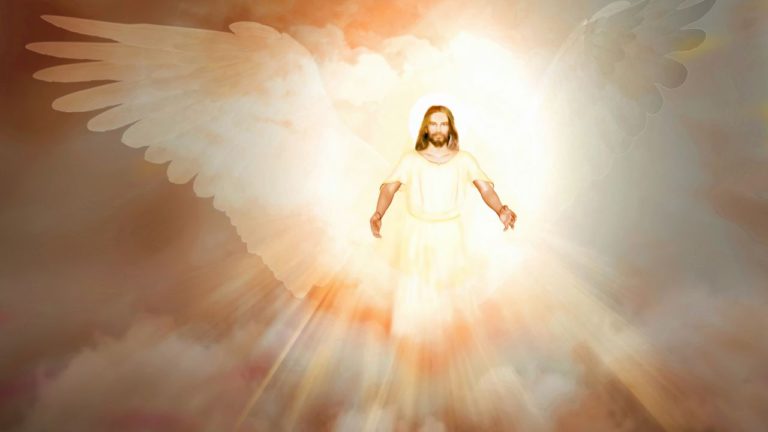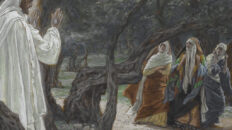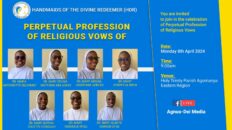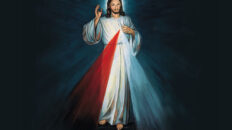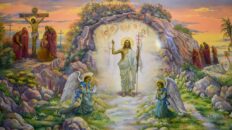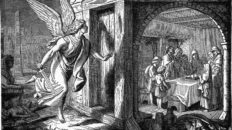THEME: CALLED TO BE SAINTS
Readings: Isaiah 49:3, 5-6/ 1 Cor. 1:1-3/ John 1:29-34
2nd Sunday in Ordinary Time
Highlights of this homily are as follows:
- We are “called to be saints”; that is to be holy.
- To be holy is to be God’s friends or His adopted children.
- Our holiness is by God’s grace.
- It is because of the sacrifice of Christ that we receive the grace of holiness.
- By the Holy Spirit’s gift of faith, we enjoy the grace of holiness.
- God’s grace also sustains us in holiness.
- We have to cooperate with the grace of God to remain holy.
Today’s second reading is taken from the introduction of St. Paul’s first letter to the Corinthians. In this introduction, St. Paul reminds the Christians in Corinth that they are “called to be saints” (1 Cor. 1:2). By implication, all Christians have been called by God to be saints. In other words, all of us have been called by God to be holy. Thus, the Lord enjoins us: “Be holy for I, the Lord your God, am holy” (Lev. 19:2).
To be holy is to be in the company of the all-holy God. To be holy is to be God’s friends. To be holy is to live as adopted children of God. To be God’s friends or His adopted children is by His grace – His favour which we do not merit.
Our holiness is, therefore, first and foremost by God’s grace. That is, it is God who, out of His infinite love, takes the initiative to call us to be holy. This calling to live with the all-holy God was in His plan even before the creation of the world. This is affirmed by the Letter to the Ephesians: “Blessed be the God and Father of our Lord Jesus Christ, who … chose us in Christ before the foundation of the world to be holy and blameless before him in love” (Eph. 1:3-4).
In accordance with the above-mentioned plan of God, Adam and Eve lived in the presence or company or friendship with the all-holy God until they disobeyed Him (cf. Gen. 3:1-23). To restore this holy friendship with God, the Father offered His sinless Son, Jesus Christ, in atonement for the sin of all humanity. Hence, St. John the Baptist, according to today’s gospel reading bears irrefutable witness to the fact that Jesus Christ is the sacrificial “Lamb of God who takes away the sin of the world” (John 1:29).
Through the sacrifice of Jesus Christ, our sins are forgiven, and we are made God’s adopted children. This is affirmed by the Letter to the Ephesians: “He [God the Father] destined us for adoption as His children through Jesus Christ, according to the good pleasure of His will, to the praise of His glorious grace that He freely bestowed on us in the Beloved. In Him [Christ] we have redemption through His blood, the forgiveness of our trespasses, according to the riches of His grace” (Eph. 1:5-7).
Furthermore, it is important to note that it is through the action of the Holy Spirit, that we receive the gift of faith (cf. 1 Cor. 12:9); and it is by faith that we enjoy the grace of holiness or the grace of adopted children of God (cf. Rom. 8:14-17).
God’s grace does not only make us holy, but it also sustains us in holiness. We, on our part, have to cooperate, on daily basis, with the grace of God to remain holy. How do we cooperate with God’s grace? We do so by doing His will (cf. Psalm 40:8). To do His will is to have faith in God and to obey His Commandments, which are summed up in love of God and love of neighbour (cf. Matt. 22:37-40).
Finally, may God’s grace of holiness abound in our lives; may we constantly cooperate with God’s grace and eventually join the company of the saints in heaven to enjoy God’s loving and holy presence forever. Amen!
By Very Rev. Fr. John Louis
Image credit: Jesus returns by Valerie Anne Kelly

